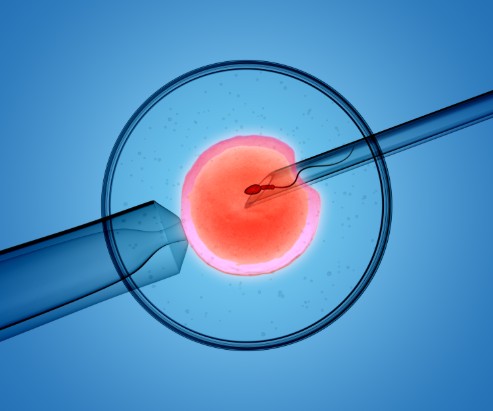Compare costs
Average cost of treatment in key countries
Include indicative costs for treatment, travel, insurance and accommodation
Get a quote
1. Complete the enquiry form
2. Select countries of interest
3. Providers respond directly
Donor eggs give couples the possibility of bearing a child and can be considered when a woman has low/poor quality eggs, irregular periods, has already started the menopause, not responded well to fertility drugs and/or IVF treatment, or for any other medical reasons, and the risk of hereditary diseases.
Eggs are taken from a donor woman to be fertilised with the male partner's sperm then planted inside the woman's body. More than 5,000 babies have been conceived in the UK this way but there is now a shortage of egg donors following the change to anonymity rules in 2005 (which means that people born through an egg or sperm donation have the right to find out the donor’s identity when they reach the age of 18). Many British couples are now seeking egg donation abroad in countries such as Spain and the Czech Republic.
It is important to be honest and clear about how you feel about the use of donor eggs (oocytes or gametes). Many fertility doctors recommend counselling so that couples can openly discuss their feelings, fears and concerns about having a donor-conceived child and talk through issues such as if, when, or how to tell their child about their origins.
With all Third Party Reproduction (the use of eggs, sperm or embryos from a donor) it is also vital to check what screening procedures the clinic has in place to ensure that the eggs are free from genetic defects or diseases and screened to ensure good general and reproductive health. You should also ask about their genetic history and psychological stability.
Fertility clinics should screen egg donations for diseases such as hepatitis B and C, Cystic Fibrosis mutations, sexually transmitted diseases like HIV, Chlamydia, Syphilis and Gonorrhoea.
The clinic will try to match a donor’s physical characteristics with a couple’s requirements and will have a pool of donors to choose from. You should be able to read about their health history, their weight, height, age, and complexion, as well as their educational or professional background.
Donor rights and legalities will differ from country to country so be aware that some countries may not allow donor treatment, or have restrictions on age, single women, or same sex couples.
Regarding the anonymity issue, if you decide to have both egg and sperm donors think about whether you will try to hide the fact that you are not the biological parents, or be open about their origins from the outset? Do you or your partner believe that a child should know their genetic origins or do you agree with anonymity? If you would like your child to have the option of contacting the donor go to a clinic which offers ‘open identity’ donors and check that it has a good record retaining system.
Choosing to go abroad for donor eggs/sperm and IVF/IUI treatment is not just about avoiding waiting lists, lack of access, or saving money. Having the procedure carried out in a sunny/relaxing environment in a holiday-like situation can greatly help with the success as fertility experts have proved that the more relaxed couples are, the higher the chance of success. Furthermore, you can choose to have complete privacy, telling friends and family that you are simply going on vacation!
Standards vary considerably so, as with all treatments abroad, patients should check the hospital/clinic’s standards of quality and safety, ask about their success rates for donor offspring (i.e. how many egg donations result in a live birth, from fresh or frozen embryos - it is generally higher from fresh eggs so ask about both) and raise with them any ethical issues like payment to donors and donor anonymity.
Ask the clinic/hospital about latest developments regarding egg vitrification which freezes eggs quickly so that ice crystals cannot form, and has higher success rates than ordinary egg freezing techniques.
Find out what codes of practice the clinic has signed up to and whether they adhere to EU or American regulations. The EU Tissues and Cells Directive sets out standards of quality and safety that should be met within countries inside the EU/EEA.
Before undergoing donor egg treatment the mother will need a thorough medical check up to establish whether her body is suitable for pregnancy, especially if aged over 40 years.
If you are thinking about donating eggs make sure you understand your rights – and the rights of the person who may receive them.


